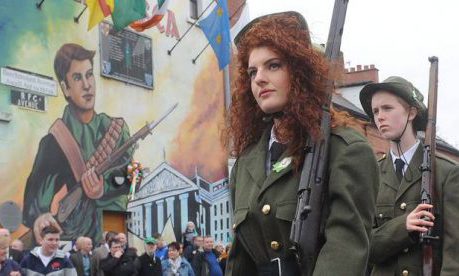This week marks the centennial of the Easter Rising – the armed insurrection that would trigger nationalist Ireland’s final battle for independence from Great Britain.
The first of July will mark another centennial, that of the Battle of the Somme, one of the bloodiest battles in human history, in which over 3,500 Irish soldiers were killed.
For 100 years, the Rising has occupied center stage in the historical memory making of republican Ireland and the global Irish diaspora. But the role of Irish soldiers in World War I had been all but forgotten – until now.
As a historian of Ireland and the British Empire, I seek to understand not only these events themselves, but also the discrepancies in the ways they have been studied and remembered.
Why has it taken so long to see their interconnections?
The Rising that shook the empire
On April 24, 1916, a band of radical republicans forcibly seized and held key positions in Dublin.
Frustrated by the failure of Britain to implement Home Rule – a form of devolved self-government, not unlike what Scottish “Yes” voters sought in 2014 – as well as by the Irish majority’s seeming contentment to remain within the United Kingdom, the rebels sought to awaken the Irish nation and wrest the country from Britain’s imperial grasp.
It was an opportune moment, the rebels reasoned. Britain was otherwise engaged – in fighting World War I, or what would become known as the “Great War” because it was quickly becoming the biggest and most horrendous war the world had ever seen.
The rebellion, at least in the immediate term, was a failure.
Inadequately armed with outdated weapons and vastly outnumbered, the rebels were no match for the British Goliath. They held out against the British counterassault for only six days. The leaders were quickly executed. Approximately, 1,800 Irish men and women were detained in prison camps in Britain. The Irish public failed to lend the rebels their support. Continue reading
Sources
- Article by Jessica Harland-Jacobs, Associate Professor, History, University of Florida, in The Conversation.
- Image: The Belfast Telegraph
